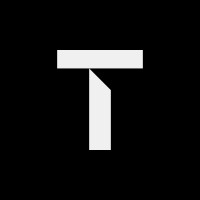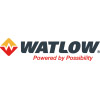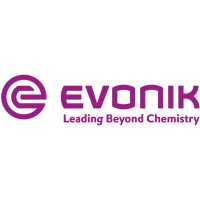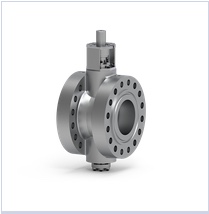-
Optimal monitoring of separation processes
Monitoring interfaces or multiple layers in process vessels poses some challenges for the measurement technologies. Where other measuring methods fail and cannot withstand extreme process conditions, radiometric measuring systems can provide reliable results. Berthold’s radiometric measurement systems are used to monitor interfaces or multiple layers in process vessels. Thereby, not only the interfaces between two phases can be localized, but also the measurement of density ...
-
Valmet Flow control for delayed coking
Improving reliability and productivity of your process. The delayed coking unit is potentially one of the most profitable operations at any refinery. It is also a dependency for plant-wide downstream operations. Valves must handle a range of gases, liquids and solids at varying pressures and temperatures: Reliability is not optional.
-
Why do many crude/vacuum units perform poorly?
In many cases it’s because the original design was based more on virtual than actual reality. There is no question: computer simulations have a key role to play but it’s equally true that process design needs to be based on what works in the field and not on the ideals of the process simulator. Nor should the designer simply base the equipment selection on vendor-stated performance. The design engineer needs to have actual refinery process engineering experience, not ...
-
Valve controls and actuators product offering
Valmet offers a complete range of Neles™, Neles Easyflow™, Jamesbury™, Stonel™ and Valvcon™ solutions for your valve automation needs. Our valve automation offering ranges from limit switches to reliable actuators and intelligent valve controllers with third generation diagnostics. The unique solutions ensure the best possible valve performance and compliance to environmental regulations, regardless of valve make, model or manufacturer.
-
Echotel® ultrasonic level switches
The less you will worry if a tuning fork is up to the job of providing the outstanding quality, reliability and overfill prevention your facility needs. Echotel® ultrasonic switches provide continuously accurate and reliable level control that outperforms tuning fork technology. While tuning forks have been widely adapted by the industry, the fact is Echotel ultrasonic switches offer more benefits.
-
Unparalleled technology with uncompromising standards. In 2001, Orion Instruments set a course to raise the standards by which magnetic level indicators (MLIs) are viewed. As an AMETEK company whose level and flow solutions have been trusted worldwide for more than 80 years — Orion’s products are engineered and manufactured under the same strict and unyielding standards. A Magnetic Level Indicator (MLI) consists of 3 major components - Chamber - Float - Indicator How ...
-
Tower field service, maintenance, revamps and installation
Worldwide maintenance and installation services. Since 1971, Tower Field Service (TFS) has been a tower specialist performing tray and packing installation, tower maintenance, and plant turnaround projects. Years of successful tower and vessel experience assures our customers of a partner who is safe, cost effective and technically experienced. The challenge to complete multiple tower revamps and retrofits safely and on time is what Tower Field Service most prides itself in. ...
-
The term ‘process heater’ is defined as any process plant unit that uses a controlled/monitored flame to heat process gas or liquid streams. Similar units operating at higher temperatures are also used, for example on ethylene production plants, to produce thermal breakdown (‘cracking’) of hydrocarbon process streams — generally referred to as ‘thermal crackers’. Both units are in widespread use on refinery and petrochemical plants and are major consumers of fuel ...
-
Real-Time Measurement for Unparalleled Safety and Control Analyzer solutions to reduce process downtime, ensure safe operation, and optimize production efficiency in refinery operations. Process safety and optimized combustion control are essential for operating today's fired equipment through the measurements of excess oxygen (O2) and combustibles (CO+H2). Reliable indication of low-combustion O2is critical to the effectiveness of the Burner Management System in a fired ...
-
The Double Block and Bleed design features every technical advantage which the series TRI-CON has plus there is a true double block and bleed feature which delivers zero leakage. By using this design, the former two valve system with a spool piece becomes obsolete. This fact is not only important for inÂstallation since you have to install only one valve body in the pipeline, but also only one actuator or gearbox is required. With ZWICK’s unique design of the linkage between ...
-
Modern crude distillation, modularized
Global interest in modular refinery construction is surging. Small modular refineries are attractive to investors for several important reasons: SPEED: Project time from contract execution to start-up can be as short as 18-24 months. LOGISTICAL ADVANTAGES:Modular refineries can be built in remote locations to realize efficiencies in supply and transportation of raw crude and refined products. LOW INITIAL COST: Small relative size makes initial capital cost more manageable. Modules ...
-
Maximize the value of your naphtha feedstocks and downstream processes
New solutions for changing needs Lighten the burden of heavy feedstocks with Topsoe catalysts, process designs and technologies. If your refinery is like most, you’re under pressure to squeeze more value out of heavier feedstocks, and this presents new challenges for catalysts. To name just one example, increasing use of coker feedstocks has led to higher silica and nitrogen levels in the naphtha streams, requiring catalysts with superior HDN activity and greater surface ...
-
Next generation Fluid Catalytic Cracking Catalyst Performance for butylenes maximization over propylene. Fourtune™ delivers highest butylenes yields and $0.30/bbl profitability improvement. Results Fourtune™ outperformed the incumbent catalyst and generated significant profitability for the refinery via increased butylenes yields, improved butylenes selectivity and increased gasoline octane. A post audit of the Fourtune™ catalyst was performed using multiple tools, including ...
-
Improved H2 purification and recovery with UOP Polybed™ pressure swing adsorption
Pressure Swing Adsorption (PSA) is the industry standard for H2 purification and long-term, reliable recovery. Honeywell UOP’s PSA technology is relied on by refineries and hydrogen producers worldwide, with more than 1,100 systems installed in over 70 countries. In this free, one-hour webinar, you will have the opportunity to gain valuable insights: - Understand what makes Honeywell UOP Polybed™ PSA purification technology unique - Learn about recent changes in Honeywell ...
-
Boosting refinery margins through blend optimisation and loss control
In the current fast-paced and cost-sensitive refinery environment, enhancing margins is no longer just a competitive advantage, it’s essential for survival. This exclusive webinar dives deep into two of the most transformative strategies for boosting refinery margins: Blend Optimization and Hydrocarbon Loss Control. By honing these critical processes, refineries can drive operational excellence, reduce inefficiencies, and elevate product quality, ultimately improving profitability. Why ...
-
Advanced analytical measurement techniques for emerging feedstocks
Can sustainability and profitability go hand in hand? Join us for an insightful webinar that explores how advanced analytical measurement techniques can drive both growth and resilience in the petrochemical industry. With expertise in distillation, elemental analysis, and gas chromatography, PAC offers innovative solutions to optimize operations for players in plastic circularity. In this webinar, we will cover trends in the petrochemical market, including emerging feedstocks, ...
-
Electrification of process heating to reduce CO2 emissions: environmental and economic benefits
As industries worldwide confront ambitious climate goals, electrification has become a vital strategy for reducing emissions and advancing sustainability. Whether in manufacturing, energy production, or heavy industries, electrification is transforming industrial processes by driving both environmental and economic benefits. While the primary goal is to move away from fossil fuel-based systems to significantly lower greenhouse gas emissions, electrification offers a broader spectrum ...
-
Driving process optimization and reduced downtime with advanced level measurement
Your processes demand precise level controls, avoiding the negative impact of losing real liquid or slurry levels. Accurate and consistent measurements need to cope with challenges such as foaming and fluctuating vessel pressures. With over 65 years of pioneering expertise in nucleonic instrumentation, Tracerco stands at the forefront of innovation in the petrochemical and refinery sectors. The Tracerco™ Level gauge has evolved through numerous redesigns since its inception. ...
-
Reducing contractor expense with smarter maintenance & reliability workstreams
From daily maintenance work to complex annual turnarounds, refineries can use a significant amount of expensive contractor labor. What if you could improve your workstreams, reduce operational complexity, and lower variable costs? In this webinar, we’ll discuss the challenges that refineries face with current ways of work and look at how customers are improving processes and margins with smarter digital tools and processes from Cognite. Watch this free webinar to learn: - ...
-
Exploring industrial analytics alternatives in the manufacturing 4.0 Era
In the Manufacturing 4.0 era, industrial organizations have more data at their fingertips than ever, offering the promise of higher production rates, more consistent quality, and reduced costs through data-driven strategies. Standing between many businesses and this promise of process optimization are questions surrounding the right tools to harness this data effectively – a choice complicated by the shifting status of longtime standard OSIsoft’s ProcessBook and PI Vision ...
-
Can process electrification accelerate decarbonization of refining and petrochemicals?
Is electrification the right fit to decarbonize the oil and gas sector? Despite global efforts, CO2 emissions continue to rise, placing the O&G industry under increasing pressure to reduce its carbon footprint. With the sector responsible for 15% of total energy-related emissions, and its associated processes heavily relying on fossil-fuels, strategic action is crucial to meet global climate goals. This webinar will explore the key drivers and challenges of decarbonization ...
-
Breaking feedstock barriers with HTW® gasification technology
In the race to achieve net-zero emissions by 2050, industries are facing unprecedented challenges in meeting ambitious targets for sustainable fuels and chemicals. As sustainable feedstocks used today become scarce, the search for innovative solutions has never been more critical. Discover how GIDARA Energy's gasification process and efforts can efficiently convert a wide array of sustainable feedstocks – from forestry residues and municipal solid waste (MSW) to hard-to-recycle ...
-
Novel sulfur removal pathways to aid energy reduction and decarbonisation
Decarbonisation and energy efficiency are key economic drivers for refining and petrochemical operators globally, along with emphasis on minimizing sulphur emissions. Sulphur removal has been practiced in the industry for decades. However, with the development of new media, adsorbents, and catalysts, it’s now possible to achieve the above stated goals by deploying these materials in different applications related to refinery and petrochemical sectors. This webinar will showcase ...
-
Elevating emulsion layer level measurement
Gain exclusive insights into a groundbreaking Time Domain Reflectometry (TDR)-based Multiphase Detector from Ametek Level Measurement Solutions that revolutionizes level measurement in applications with dynamic emulsion layers. Register to attend this free webinar to: - Learn how to accurately measure dynamic emulsion layers. - Overcome challenges that can limit process optimization. - Explore a new, patented concept in utilizing TDR technology for dynamic emulsion layer ...
-
Exploring chemical recycling and bio-based plastics production in refineries
How do we meet the growing demand for plastics? The global refining, gas, and petrochemical industries are under pressure to decarbonise and adopt sustainable practices while meeting increasing needs for plastics. This webinar will provide you with the following insights in addressing these challenges: - Explore advanced solutions such as chemical recycling, bio-based plastics, and mechanical recycling - See how Axens integrates recycling technologies into existing refineries - ...
-
Catalyst recycling & sulfur recovery: A new approach
Evonik’s catalyst reuse technologies enable today’s sulfur recovery unit operators to gain the activity they require while minimizing cost and environmental footprint, with the help of catalyst reuse technologies. You will benefit from the following insights: • Get an overview of how Evonik is leading the industry in catalyst reuse technologies, in particular for tail gas treating applications. • Explore the benefits of extending catalyst reuse from hydroprocessing ...







































